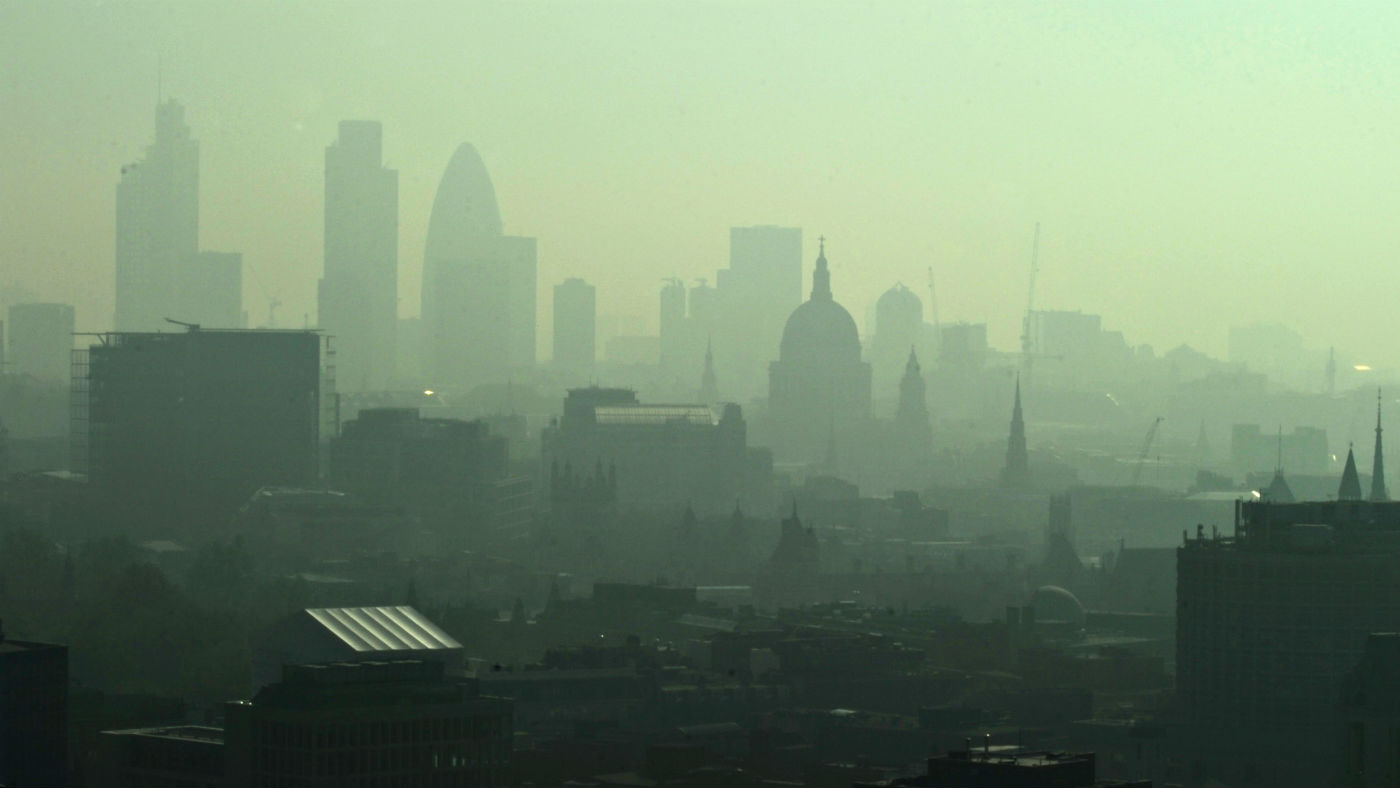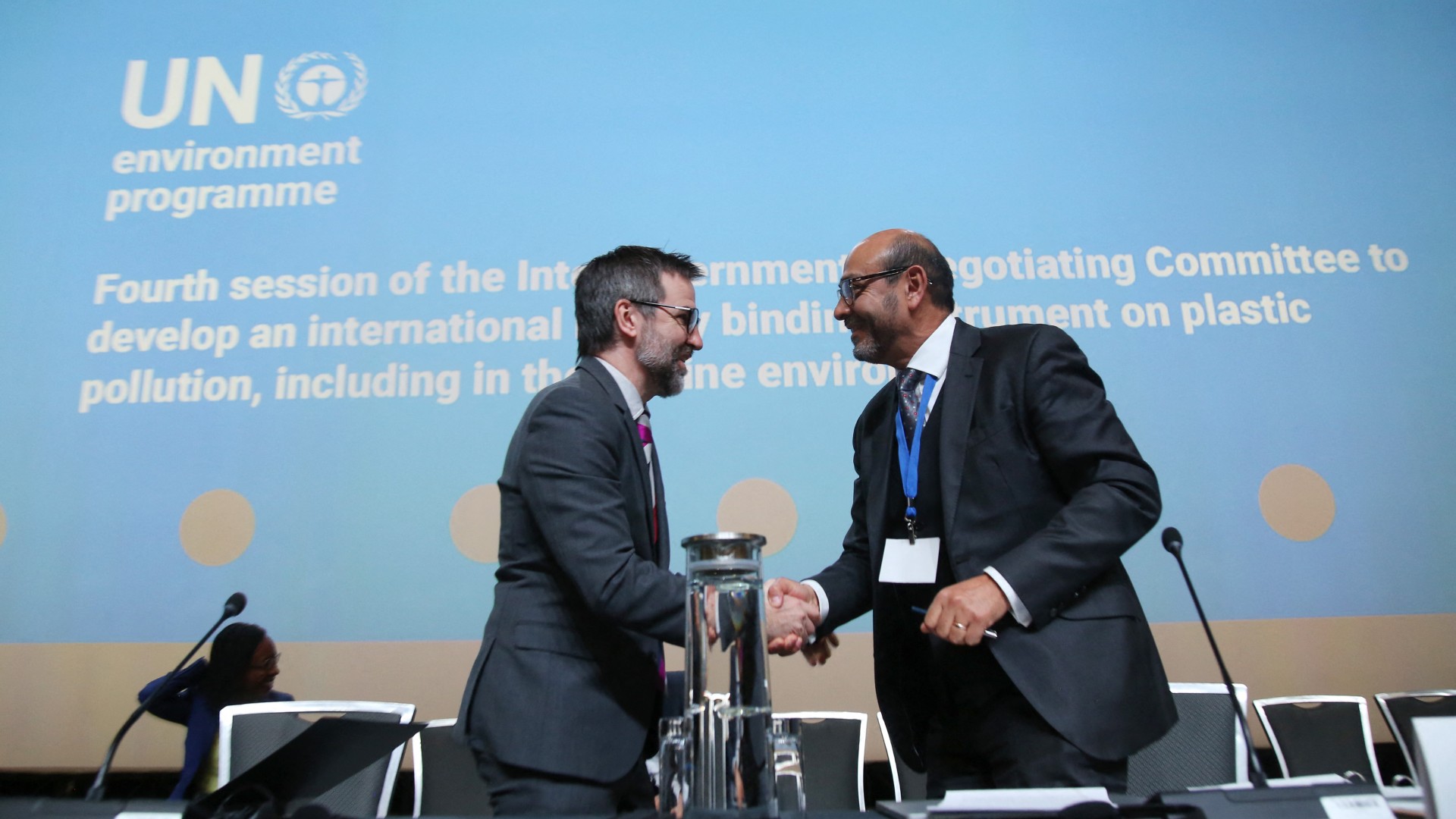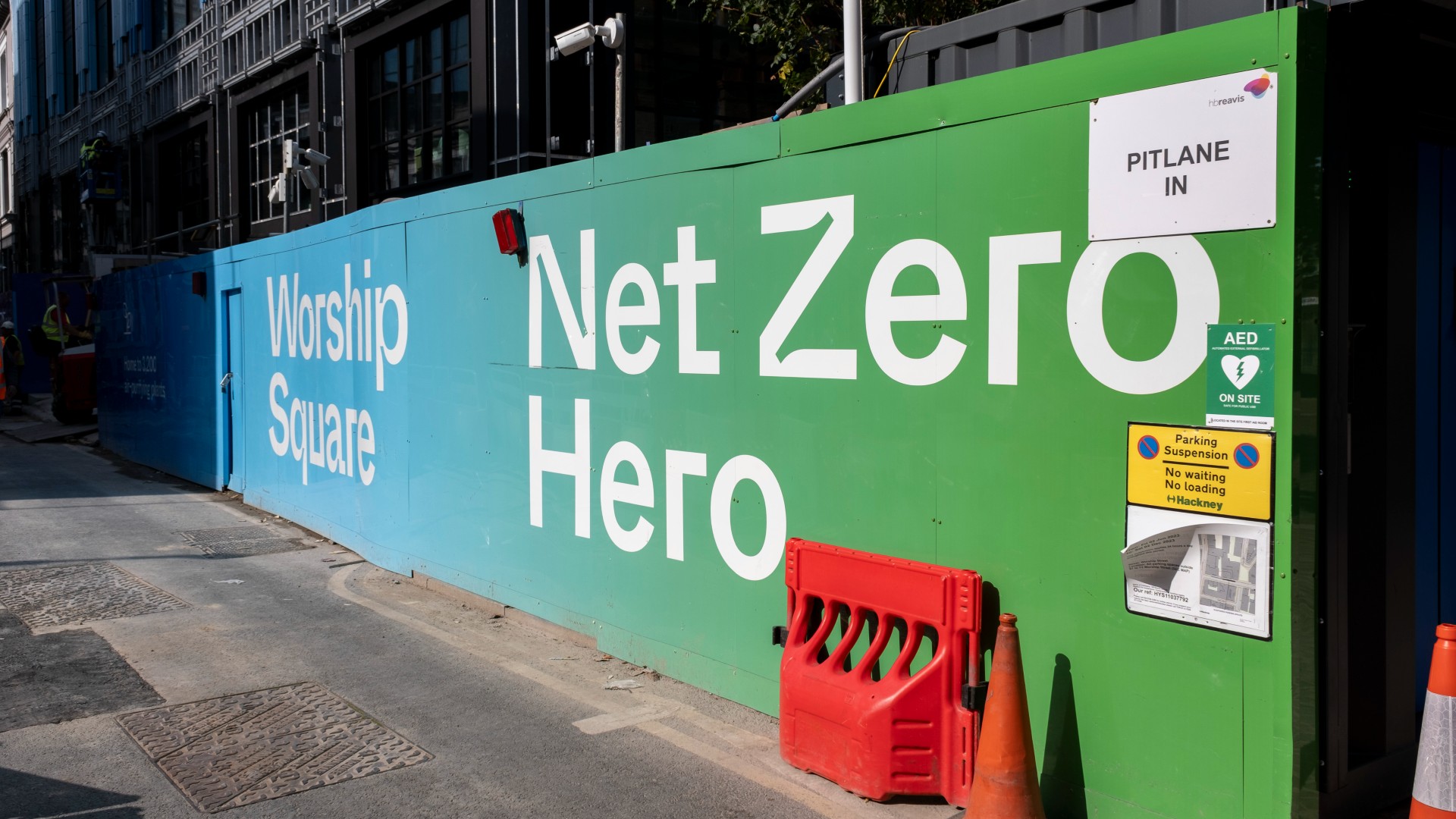‘Dangerous’ pollution levels land UK in court
Government referred to European Court of Justice for failing to tackle illegal levels of air pollution

A free daily email with the biggest news stories of the day – and the best features from TheWeek.com
You are now subscribed
Your newsletter sign-up was successful
The UK has been referred to the European Court of Justice over its long-standing failure to deal with dangerous and illegal levels of air pollution.
Britain is one of six EU countries: Germany, France, Italy, Romania and Hungary, to be taken to court by the European Commission.
The EU's Environment Commissioner Karmenu Vella said the bloc “owed it to its citizens” to take legal action after continued failures by national governments to meet EU limits for nitrogen dioxide.
The Week
Escape your echo chamber. Get the facts behind the news, plus analysis from multiple perspectives.

Sign up for The Week's Free Newsletters
From our morning news briefing to a weekly Good News Newsletter, get the best of The Week delivered directly to your inbox.
From our morning news briefing to a weekly Good News Newsletter, get the best of The Week delivered directly to your inbox.
According to the Royal College of Physicians and the Royal College of Paediatrics and Child Health, air pollution causes around 40,000 early deaths a year in the UK.
The government has lost a number of legal battles on air pollution in British courts over recent years and now “could face fines totalling millions of pounds, ongoing until the problem is solved”, reports the BBC.
Levels of nitrogen dioxide, which is mostly produced by diesel vehicles, has been illegally high since 2010, but the governments’ latest plan in 2017 was condemned as “woefully inadequate” by city leaders and “inexcusable” by doctors.
Perhaps unsurprisingly, the decision to take the UK to court has fuelled debate about Brexit, with environmentalists claiming that the EU had demonstrated what will be lost after Britain leaves the bloc.
A free daily email with the biggest news stories of the day – and the best features from TheWeek.com
Environment Secretary Michael Gove previously promised that environmental governance would not be diluted when the UK leaves the EU. But he revealed last week that his post-Brexit environmental watchdog would not have the automatic power to take the government to court, says the BBC.
Yesterday’s referral came the same day as the Energy and Climate Change Secretary Greg Clark “announced new measures to ramp up fossil fuel production, citing the “substantial benefits” of exploiting shale gas”, The Independent reports.
-
 Should the EU and UK join Trump’s board of peace?
Should the EU and UK join Trump’s board of peace?Today's Big Question After rushing to praise the initiative European leaders are now alarmed
-
 Antonia Romeo and Whitehall’s women problem
Antonia Romeo and Whitehall’s women problemThe Explainer Before her appointment as cabinet secretary, commentators said hostile briefings and vetting concerns were evidence of ‘sexist, misogynistic culture’ in No. 10
-
 Local elections 2026: where are they and who is expected to win?
Local elections 2026: where are they and who is expected to win?The Explainer Labour is braced for heavy losses and U-turn on postponing some council elections hasn’t helped the party’s prospects
-
 The environmental cost of GLP-1s
The environmental cost of GLP-1sThe explainer Producing the drugs is a dirty process
-
 ‘Like a gas chamber’: the air pollution throttling Delhi
‘Like a gas chamber’: the air pollution throttling DelhiUnder The Radar Indian capital has tried cloud seeding to address the crisis, which has seen schools closed and outdoor events suspended
-
 Why is the world so divided over plastics?
Why is the world so divided over plastics?Today's Big Question UN negotiations on first global plastic treaty are at stake, as fossil fuel companies, petrostates and plastic industry work to resist a legal cap on production
-
 Anti-anxiety drug has a not-too-surprising effect on fish
Anti-anxiety drug has a not-too-surprising effect on fishUnder the radar The fish act bolder and take more risks
-
 Oysters from New York's past could shore up its future
Oysters from New York's past could shore up its futureUnder the Radar Project aims to seed a billion oysters in the city's waterways to improve water quality, fight coastal erosion and protect against storm surges
-
 Ottawa climate talks: can global plastic problem be solved?
Ottawa climate talks: can global plastic problem be solved?In the Spotlight Nations aim to draft world's first treaty on plastic pollution, but resistance from oil- and gas-producing countries could limit scope
-
 EPA limits carcinogenic emissions at 218 US plants
EPA limits carcinogenic emissions at 218 US plantsSpeed Read The new rule aims to reduce cancer-causing air pollution in areas like Louisiana's 'Cancer Alley'
-
 The push for net zero
The push for net zeroThe Explainer Britain has committed to reaching net-zero carbon emissions by 2050. What will this involve?